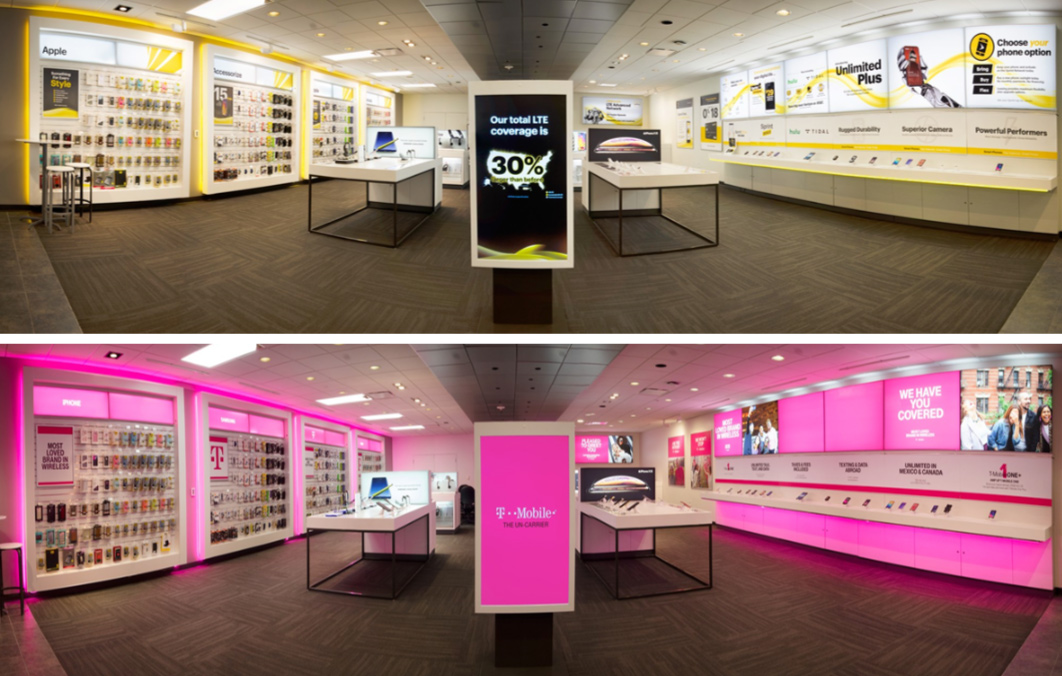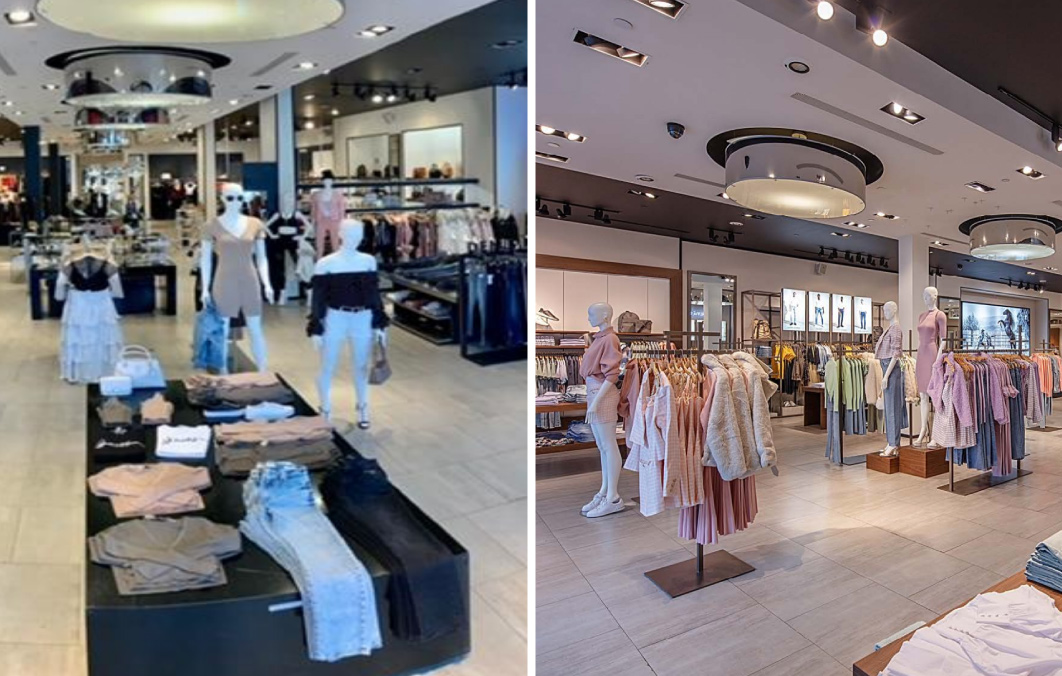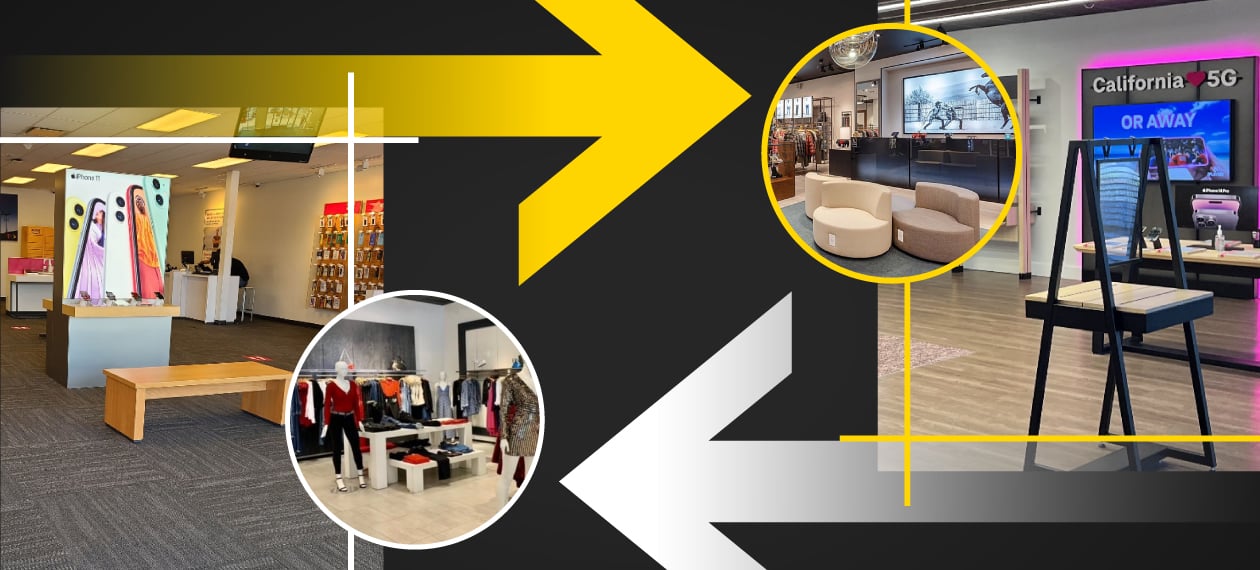The retail industry continues to struggle with the disruption of the past few years, from supply chain disruptions and cost increases to labor shortages and permitting issues.
For design and development leaders, however, there’s no slowing down. To maintain or even expand their fleets — while meeting sustainability goals and keeping costs down — they have to plan carefully, think creatively, and choose the right partners.
In a recent episode of The Rollout, all of this was up for discussion as three retail leaders came together to share lessons learned while executing massive remodel programs during the height of the pandemic.
Moderated by Angie Druley, VP of Retail at NGS, the conversation included Jim Arca, Director of Construction & Facilities at T-Mobile, and Marco Arroyo, Senior Director of Store Planning, Design & Construction at GUESS.
A Question of Scope
As the T-Mobile/Sprint merger loomed in the spring of 2020, Arca received a tall order: to remodel 3,600 Sprint stores in four months. He knew it wouldn’t exactly be practical to hire 3,600 contractors, so he set about figuring out how he could reduce the scope of the task before him.
What he realized was that his team didn’t have to completely gut and renovate thousands of stores in such a small window. Instead, they could redo each store’s customer-facing infrastructure — signage, displays, wall colors, carpeting — and deal with the backroom technology over a longer period. Because the fixtures and flooring in Sprint’s locations were more or less generic, he knew that applying T-Mobile’s iconic magenta aesthetic would be enough to cement the rebrand in the eyes of the general public.
It took some experimentation to figure out whether this plan was actually feasible. First his team tested how quickly they could switch over a mock store in Sprint’s Overland, Kansas headquarters. Then they shipped out to a freshly shuttered location in Portland, Oregon during the brief window before it turned back over to the landlord. “We affectionately named it the cadaver program,” Arca recalled. “We're gonna practice on a dead one first and then see if it's gonna work.”
The experiments proved that an effective team with clear plans could execute a storeroom remodel in a day. Arca started rolling out the strategy on April 1st, 2020, wrapping it up in time for the identity changeover on August 1st. 
“We came up with roughly 17, 18 contractors doing 60 stores a day,” he said. “We could do 60 stores a day for four days, and then on the fifth day go back and capture anything that probably wasn't done within those four days. We were able to make it work with the time that we were given by reducing the scope.”
Looking back at the project — which his team had to supervise remotely due to Covid-19 restrictions — Arca credits its success to that thorough planning process, as well as T-Mobile’s GC partners. For retailers hoping to execute similar remodels, he recommended working closely with procurement partners on materials bidding processes, buying in bulk whenever possible, and looking for small savings that add up at scale.
“What I always say is, if you could just avoid putting the little whoop-de-do into that counter, that could save us a lot of money,” he explained. “If it’s rounded curves, we can square 'em up. I don't know that anybody's gonna know the difference.”
Rolling with the Punches
When Marco Arroyo joined GUESS in 2021, he was tasked with refitting 92 of the company’s North America locations as part of its broader mission to become a more eco-friendly company.
“We had basically four months before the holiday season, and we had to complete 92 stores,” he recalled. The project’s sustainability component meant that replacing materials was out of the question; the goal, rather, was to recycle and refinish existing features.
This was in the thick of the pandemic’s supply chain disruptions, posing significant challenges — not to mention costs — for Arroyo’s team. One of these challenges emerged mere weeks into the process, when one of his external partners “just completely dropped the ball.” Things got back on track when he turned to NGS for help securing materials and developing a plan for the refit.
Leveraging its existing relationship with 3M, NGS helped procure an order of DI-NOC architectural surface film (for which GUESS leveraged its own status as a global company to negotiate a standard global price). As Druley explained, this material has been used in Asia and Europe for years, but only recently gained popularity in the US, largely thanks to the pandemic’s impact on the availability of raw materials.
“People who are typically kind of married to that real wood look or that real stone look have been willing to step back and take another look,” she said. “Especially when you're hearing that this is holding up really well, it's staying in place, it gives us a complete look at a fraction of the cost.”
In addition to helping procure the materials for GUESS, NGS also oversaw its installation across the 92 stores, quickly transforming the brand’s furniture and fixtures without any operational interruptions. By the time it was finished — no pun intended — the project came out 40 percent under budget. 
Nothing Is Certain
For Arroyo, the refit was a case study in the importance of agility, communication, and working with high-quality partners dedicated to doing things right. “Having a team that is over-the-top — in the whole sense of the word — will help a lot,” he said.
It’s not just about vendor partners, of course. GUESS also works with local consultants to help navigate permitting, which is still marred by delays and red tape. These consultants lean on their relationships with city officials to manage the process: as Arroyo put it, they “go down to the city and knock on their door every single day.” If necessary, his team also works closely with landlords, tenant coordinators, and general managers to leverage their relationships with city officials. In one Nashville project, they recently slashed a 12-week permitting process down to eight weeks, all thanks to their local partners.
Asked what final words of advice they have to offer, the panelists hammered home the importance of planning, communication, and remaining flexible when things inevitably go awry.
“As much as you plan, you're always gonna have these variables,” Arca said. “We're problem solvers. That's what our job is. If there were no problems, I wouldn't need half the people that work for me, if not more.”
"Communicate with your vendor partners,” Druley offered, describing the debrief session NGS and GUESS held after the refit to discuss lessons learned. "Having those kinds of open conversations — about what went well, what didn't go well, how can we make it better — is really important.”
“Nothing is certain; there are always changes,” Arroyo concluded. “We need to remain agile, practical, and just get things done.”

Posted by
Physical Retail Reimagined.
RetailSpaces is a community for store development and design innovators.
March 29-31, 2026 | San Antonio, TX
Learn More!








Comments